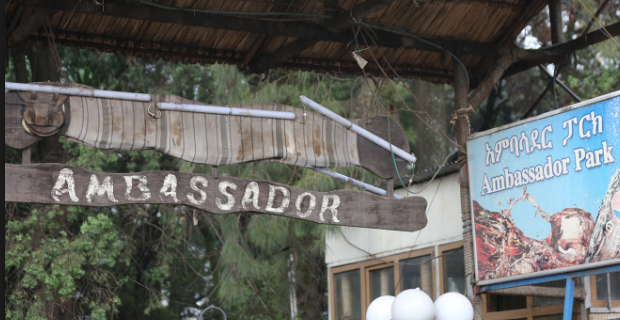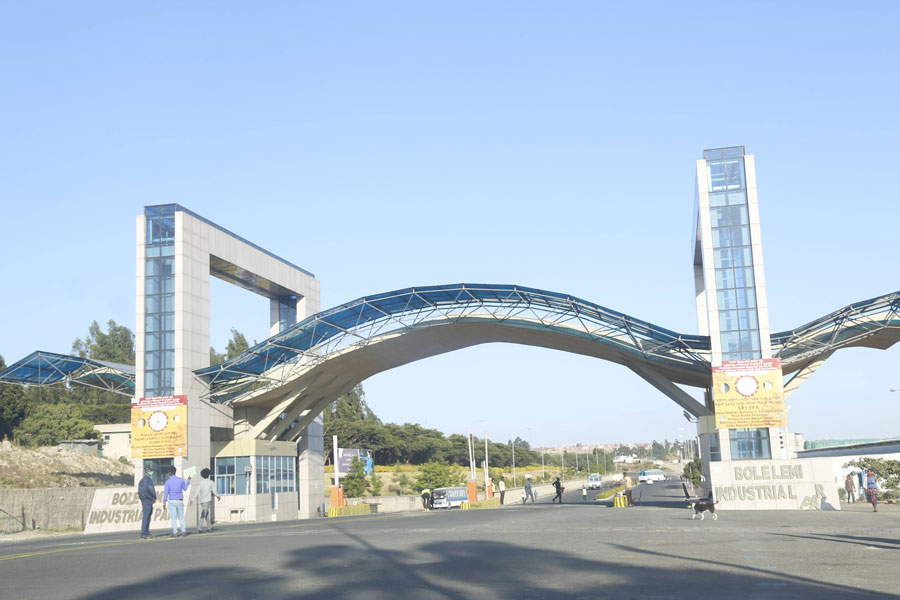
Fortune News | Dec 10,2018
Companies in the Hawassa Industrial Park have started the process for the export of personal protective equipment (PPE) after getting a green light from the Ministry of Health.
The plan to re-purpose the firms has been in progress since the Novel Coronavirus (COVID-19) pandemic caused setbacks for manufacturing and exporting. Doing so will keep the Park operational and allow it to retain its 35,000 employees. A majority of the 22 companies in the Park are prepared to start production by early June.
The companies will be producing reusable face masks, bio suits and surgical N95 masks with the capacity to make between half a million and three million PPE items a month.
The Ministry of Health, which initially prohibited the export of medical equipment in the interest of giving priority to health centres in the country, lifted the ban at the end of last month. In its letter to the Ministry of Revenues, the Health Ministry lifted the ban after taking into consideration the increase in the number of manufacturers in the country.
The companies in the Park are currently at various stages of production, according to Belay Hailemichael, the Park's manager.
The companies will be producing reusable face masks, bio suits and surgical N95 masks with the capacity to make between half a million and three million PPE items a month.
Even though the Ministry gave the green light for the export of the products, the companies were not able to proceed with shipping since there were no standards for the certification of the products.
In the middle of May, the Ethiopian Food & Drug Authority issued its newest directive on standards for the certification, production and sale of cloth face masks and made a trip to assess the companies last week. The directive also aims to decrease the public's use of medical face masks designated for health professionals in an effort to make the gear more available for the health sector.
The criteria for the certification of the face masks will be based on their filtration efficiency, breathability resistance and hydrophobic nature. The masks must also be free from medicine and biological materials on areas where they make contact with the wearer's skin.
The certification process for producers of face masks includes having a designated room for the production of the face masks, aerosol and moisture-free production and storage rooms. Regularly disinfecting the rooms and making sure they are free of pests is also required. The manufacturer must also hire a textile engineer, a chemical engineer or a professional who works in textiles.
Companies that are approved will receive a temporary production license that will remain active for the duration of the state of emergency, after which the licenses will be returned.
So far, 12 companies from the industrial parks have applied for the certification, and two of them have fulfilled the requirements and secured the licenses, according to Getachew Genete, medicine facility inspection director at the Authority.
“Those companies are large-scale manufacturers with a capacity to produce 1.5 to two million masks a month,” he added.
Among the companies set to start production of PPE are Indochie Hala and Isabella. Isabella, which previously produced socks, has 600 employees and can produce 600,000 masks a month, according to Sunil Suraweera, human resource administration and compliance manager. Hala Indochie, a textile company with 1,600 employees, previously manufactured underwear.
Ethiopian Airlines is facilitating the process of importing raw materials that go into PPE production. The airline has cut down on the cost of importing cargo to companies in this industry by 50pc.
"Ethiopian is ensuring that delays are removed and that this is given priority," said Belay.
This is not only for PPE raw materials but for all import items by the industries in the park, according to Hibret Lemma, board member of the Hawassa Industrial Park Investment Association.
Railroad costs from Modjo to Djibouti, one of the Park's biggest expenses, have been waived as of May 1, 2020, in a series of decisions passed by the Ministry of Transport. The Ministry also announced that all products from the Hawassa Industrial Park designated for the Modjo Dry Port would be given a 50pc discount for transportation fees.
"This cuts down costs for the companies significantly," said Hibret. "There are additional measures as well that are being weighed at the moment."
Deferring shed rent for three months and availing cash to the companies are among them, according to Hibret.
The adaptability of the industry is a testament to the fact that it is easy to quickly transform, along with ever-changing technology and social and environmental compliance requirements, with the right support, according to Tsegaye Gebrekidan, (PhD) an economist at the Policy Studies Institute.
"If the industry maintains its competitiveness, it can potentially be a hub for PPE, as COVID-19 has shown us that there is a gap in supplies for medical equipment," he said. "This can also encourage specialisation in the industry."
PUBLISHED ON
May 31,2020 [ VOL
21 , NO
1049]

Fortune News | Dec 10,2018

Radar | Sep 24,2022

Radar | Feb 04,2023

Radar | Aug 20,2022

Radar | Jul 25,2020

Radar | Dec 10,2018

Fortune News | Jul 31,2021

Radar | Jul 09,2022

Fortune News | Mar 23,2024

Radar | Jun 17,2023

Dec 22 , 2024 . By TIZITA SHEWAFERAW
Charged with transforming colossal state-owned enterprises into modern and competitiv...

Aug 18 , 2024 . By AKSAH ITALO
Although predictable Yonas Zerihun's job in the ride-hailing service is not immune to...

Jul 28 , 2024 . By TIZITA SHEWAFERAW
Unhabitual, perhaps too many, Samuel Gebreyohannes, 38, used to occasionally enjoy a couple of beers at breakfast. However, he recently swit...

Jul 13 , 2024 . By AKSAH ITALO
Investors who rely on tractors, trucks, and field vehicles for commuting, transporting commodities, and f...

Oct 18 , 2025
The political establishment, notably the ruling party and its top brass, has become p...

Oct 11 , 2025
Ladislas Farago, a roving Associated Press (AP) correspondent, arrived in Ethiopia in...

Oct 4 , 2025
Eyob Tekalegn (PhD) had been in the Governor's chair for only weeks when, on Septembe...

Sep 27 , 2025
Four years into an experiment with “shock therapy” in education, the national moo...